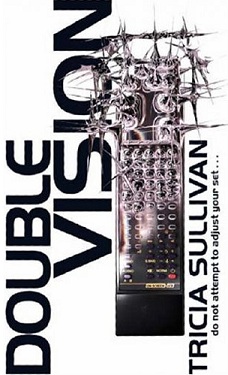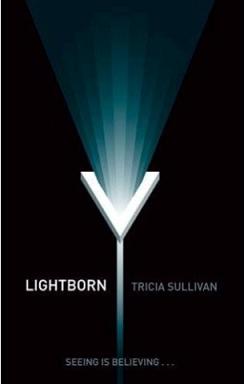
Double Vision
Tricia Sullivan
377 pages
published in 2005
Karen “Cookie” Orbach’s life seems fairly mundane when looked at from the ouside: she hasa job with the Foreign Markets Research Division at Dataplex Corp, does karate as a hobby and a weightloss exercise, has no boyfriend or partner but does has a cat, eats too much out of stress and for comfort, reads a lot of science fiction and fantasy. The thing is, Cookie is psychic and while she did offer her services to the police, who believes an overweight Black woman reading too much Anne McCaffrey? Luckily Dataplex did see her potential and engaged her as a Flier, somebody who can see what’s happening in the Grid, an alien world Cookie can see when she watches television, where see can monitor the progress of the military expedition there and work as a reconnaissance flier for Machine Front, which coordinates the offensive.
Cookie’s mundane even boring life stands in shrill contrast to the dangerous glamour of the Grid. Despite being only a passive observer there, it is much more real to her, much more interesting. It matters, while her routine life outside of it doesn’t. It’s a feeling that any science fiction or fantasy fan can recognise, that idea that whatever fantasy world floats your boat is more important than what happens in real life, but for Cookie that fantasy world is real — or is it?
